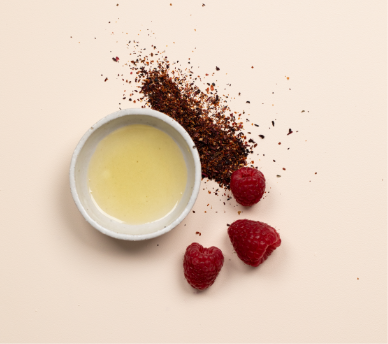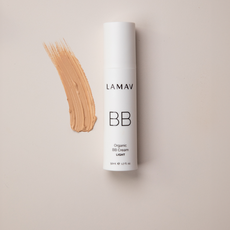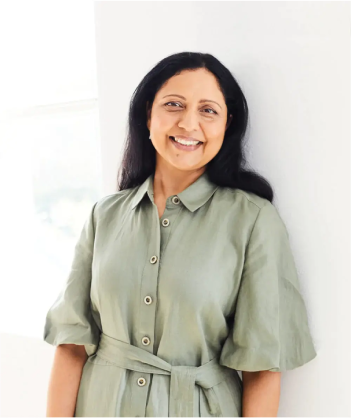The Truth About Skin Care And Ageing
There are two things in life that you can’t avoid – gaining weight when you overeat with chocolate on daily basis (though it feels sooo good) and ageing. I don’t know which one is worse, but both are certain. The appearance of the first wrinkles is a very delicate moment for almost all women. Quite often, when we get to the point where we have to deal with ageing skin, we feel super frustrated because of the immense amount of information available.
What to trust? What to buy? What to do?
If you are feeling confused let us help by busting three of the most common myths related to skin’s ageing.
Myth 1. Expensive Products Work Better
I can write an entire article about this, but I’ll try illustrating it with a simple
example – actually, a test you can do in your local drugstore. Get 2 daily face
creams from different brands and different price range. Now have a look at the label. Chances are the first five ingredients (the ones with highest concentration) are the same in both products – maybe not listed in the same order, but still the same.
Sadly the most common ingredients used in regular skin care are silicones, mineral oil and chemically modified oils – ingredients that do nothing for your skin apart from providing temporary smoothness. Besides that, quite often, high-end and low-end brands use the same compounds in the products. Why? Because they are cheap. Simple as that.
“It’s often packaging or even the perfume that makes a product expensive, not the actual science behind it.” says Doris Day, M.D., a
dermatologist in New York City.
Why pay for cheap compounds in fancy packaging then? Obviously, the beautiful packaging is not going to make your wrinkles disappear, so you might as well invest your money in something else.
No matter what you’ve been told, when it comes to skin care, there is no correlation between cost and results – the price of a product doesn’t determine its quality. What’s in it, however, does. Always read the labels.
Myth 2. Rich Creams Are The Ultimate Solution For Ageing Skin
Though we all age (it’s inevitable), we do it in a different way. If you want to slow down the ageing process, finding the best products for your skin type is essential, thus saying that the ageing skin needs rich cream (in all cases!) is not correct. Skin care is something very personal – what works for me, may do nothing for you.
Though it is true that when we age we lose body water and our skin becomes drier and less elastic, that doesn’t mean that one ultra-rich-nourishing-cream can be the ultimate anti-ageing solution. If you are 45 and you are still struggling with pimples and oily skin (because sadly, acne affects people of all ages), reaching out for a rich cream, when your skin is already oily, is not a good idea.
It may help diminish the wrinkles, bit it is also likely to clog your pores and cause
breakouts. What to do? Look for moisturizing cream with lighter texture that
soak into the skin right after application – if they are formulated well, they
will be just as effective as their richer and heavier alternatives.
We, at LAMAV, know that ageing skin needs special attention and gentle care. Our products are certified organic, 100% toxic free and not tested on animals! LAMAV’s scientifically proven bio-actives deliver outstanding anti-ageing results naturally!
Myth 3. It’s All About “Good” Genes
As much as I’d want to say that this statement is true (because my mom started getting wrinkles at the age of 40) it isn’t. I am 25 and I already have quite a lot of wrinkles.
The way we live our lives – how much we stress, how much we sleep, what we eat, what kind of products we put on our skin, do we take our makeup off before bed (or we are too lazy to do it), smoking, alcohol, excess sugar consumption – all this, summed up, determines when we are going to get our first “crow’s feet”. Genetics matter, but they are not everything.
So, don’t count on “good” genes – count on the everyday choices you make.
Buying Skin Care Products Based On Your Age Is a Must
Age and skin type are two different things and no matter what the label says there is no such thing as cream for 50 years old and cream for 20 years old. Why? Well, because you can have acne/dry skin when you are 50, as well as when you are 20.
Lots of women ask me if it’s okay to start using products for mature skin, when they are yet in their early 20s. The answer is – yes! If your skin needs more nourishment, if it has lost its elasticity and vitality, then you need “the heavy artillery”. And there is nothing wrong with using richer creams while you are still in uni, as long as you deliver to your skin everything that it needs at the moment. Be it when you are 20 or 50.
It’s true that the needs of our skin change with the age, but despite that, what should lead us when choosing skin care products, are our skin concerns (be it ageing, dark spots, wrinkles, dryness, etc), not the years behind our back.
Addressing your concerns with the right product is the key to good looking skin – skin that will stay young and healthy longer!
If you liked this post, let us know by sharing it!











